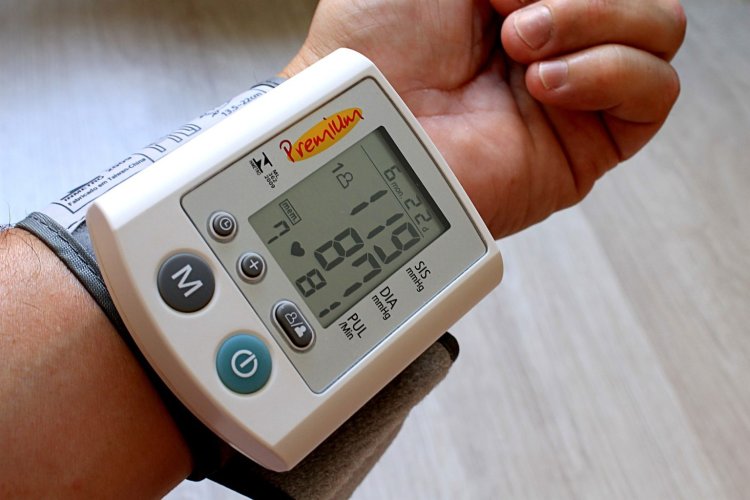5 Essential Facts about Low Blood Pressure
Low blood pressure can happen for many reasons, such as the side effects of medications; pregnancy; an underlying medical condition such as anemia, heart or kidney disorders.

Low blood pressure, also known as hypotension, is a serious medical condition that develops when the force of your blood pushing against the walls of the arteries can drop significantly. As a result, the heart is unable to pump enough oxygen-rich blood to the body. Low blood pressure can cause a range of symptoms, from feeling lightheaded and dizzy to more serious problems such as fainting and shock.
Low blood pressure is usually defined as having a lower than normal reading of less than 90/60 mmHg when taking your blood pressure. Generally, a normal reading for adults should be between 120/80 mmHg, though readings between 90/60 and 120/80 are generally considered to be pre-hypertension.
Low blood pressure can happen for many reasons, such as the side effects of medications; pregnancy; an underlying medical condition such as anemia, heart or kidney disorders; or other factors such as dehydration and severe allergic reactions. Additionally, some people’s blood pressure naturally runs low, such as those with very slim builds.

Low blood pressure can cause dizziness, fainting, breathing difficulties, and even organ failure, as the body is no longer receiving the oxygen it needs. Additionally, low blood pressure can lead to nausea, fatigue, and blurred vision. It is important to distinguish between low blood pressure and a low heart rate, as they are two very different conditions. Low blood pressure is a serious condition that should not be taken lightly. If you experience any of the common symptoms, it is important to seek help right away. Your doctor will be able to diagnose and treat any underlying conditions that may be causing the low blood pressure.
Causes Of Low Blood Pressure.
Common causes of low blood pressure include dehydration, severe allergic reactions, severe infections, sepsis, and anemia. However, there are other factors that can contribute to having low blood pressure such as heart problems, certain medications, and certain nutritional deficiencies.
Dehydration is when a person has lost too much water from the body. This can be caused by too much sweating, vomiting, or diarrhea. When a person is dehydrated, their body's tissues do not have enough water to work properly, and this can cause the blood pressure to drop because there is not enough fluid to push the blood through the arteries.

Severe allergic reactions can cause the body to go into shock and cause a drop in blood pressure. Severe infections can also cause low blood pressure through the release of cytokines that can reduce the blood pressure. Sepsis is a dangerous condition in which a person's body is overwhelmed by an infection, causing their blood pressure to drop.
Heart problems, such as heart failure, can also cause the heart to leak blood and can cause the pressure to drop. Certain medications, such as blood pressure medications, can also cause low blood pressure. Finally, some people experience low blood pressure due to certain nutritional deficiencies. The lack of certain vitamins and minerals can cause the body to experience a reduction in blood pressure.
Low blood pressure can be a symptom of a serious health condition and it is important to speak to a doctor if you believe you may have low blood pressure. Your doctor will be able to diagnose the cause of your low blood pressure and provide you with treatment options.
What To Avoid If You Have Low Blood Pressure.
If you have low blood pressure, it is important to be careful about your lifestyle and diet. Low blood pressure can lead to serious health issues in the future if not managed carefully. Here are some of the things to avoid if you have low blood pressure:
1. Excessive caffeine consumption – Caffeine can worsen low blood pressure, so it is important to limit your consumption. This includes coffee, energy drinks, soda, and other caffeinated beverages.
2. Excessive alcohol consumption – Alcohol can also worsen low blood pressure and increase the risk of dehydration and other health problems. So it is important to limit your alcohol consumption.
3. Do not skip meals – Eating a balanced diet with all the essential nutrients is important for managing your blood pressure. Skipping meals can cause your blood pressure to drop even further, so it is important to try and maintain a regular eating schedule.
4. Smoking – Smoking can worsen low blood pressure and increase the risk of other health problems, such as heart attack and stroke. So it is important to avoid smoking if you have low blood pressure.
5. Excessive exercise – While regular exercise is important for managing your blood pressure, excessive exercise can lead to low blood pressure. It is important to take breaks between your workouts and rest for a few minutes.
Overall, if you have low blood pressure, it is important to follow a healthy lifestyle and manage your diet, exercise, and alcohol consumption. Doing so will help you maintain your blood pressure and prevent any further health issues.
How To Maintain Your Blood Pressure.
It is important to take measures to keep your blood pressure at a normal and healthy level. Here are some tips to help you keep your blood pressure at a healthy level.
1. Get regular physical activity. Physical activity is important for maintaining good cardiovascular health. Make sure to get at least 30 minutes of moderate exercise on most days of the week. Activities such as walking, jogging, swimming and cycling are all effective for improving cardiovascular health.
2. Eat a healthy diet. Eating a healthy diet is important for keeping your blood pressure at a normal level. Eat plenty of fresh fruits and vegetables, whole grains, lean proteins, and unsaturated fats. Limit your sugar and salt intake, alcohol consumption and saturated fats.
3. Maintain a healthy weight. Being overweight can raise your blood pressure. Try to reach and maintain a healthy body weight by choosing healthy foods and exercising regularly.
4. Reduce your stress. Stress can have a direct impact on your blood pressure. Try to practice relaxation techniques such as yoga or meditation. Take time to do activities you enjoy and spend time with friends and family.
5. Limit your alcohol intake. Alcohol can have a negative effect on your blood pressure. If you do choose to drink, do so in moderation and consult your doctor if you have specific health concerns.
By following these tips, you can help maintain a healthy blood pressure and reduce your risk of health complications. Be sure to consult your doctor regularly to discuss your blood pressure and make changes to your lifestyle if necessary.
Fruits For Low Blood Patients.
Fruits are a wonderful and nutritious part of our diets. They are full of vitamins, minerals, and antioxidants. They’re also low in fat and calories. But did you know that some fruits can be especially beneficial for those with low blood pressure?
Fruits are ideal for this, because they’re rich in minerals and vitamins such as potassium and magnesium. These two minerals are especially beneficial for those with low blood pressure. They help to regulate blood pressure, prevent electrolyte imbalances, and help to keep your heart healthy.

Bananas, for example, are a great source of potassium, containing over 400 milligrams per banana. Oranges, apricots, and grapefruits are also great sources of potassium. Magnesium can be found in avocado, almonds, and spinach.
Other beneficial fruits include papayas, pomegranates, and kiwis. Papayas are especially high in vitamin C, which helps promote a healthy immune system. Pomegranates are a rich source of antioxidants, which help to protect cells from damage, and kiwis are high in magnesium and potassium.
Eating a diet rich in fruits is a great way to maintain your blood pressure and keep your heart healthy. Make sure to choose fresh, organic fruits whenever possible and talk to your doctor or healthcare provider if you have any questions or concerns.
Caution!
It is essential that those who suffer from low blood pressure be aware of their condition, especially in regards to their everyday activities.
It is also important that individuals with low blood pressure monitor their diet and exercise habits. Eating foods that are high in salt and fat can negatively affect these individuals, so it is important to choose foods that are low in saturated fats and high in complex carbohydrates and proteins. Additionally, ensuring that one is properly hydrated can help maintain balance when it comes to blood pressure.
When exercising, those prone to low blood pressure should be especially mindful of their heart rate and take frequent breaks if needed. It is recommended that light activity, such as walking or moderate swimming, is done instead of strenuous activities.
In addition to dietary and exercise recommendations, it is also important to make sure one regularly sees a physician that is familiar with their condition. A doctor’s visit should occur every three to six months, depending on the individual and the severity of their condition.
Keeping these recommended tips is essential to maintaining healthy blood pressure levels. Those who suffer from low blood pressure should be mindful of their behavior and lifestyle decisions in order to help prevent any serious medical complications.

 Samuel
Samuel 










